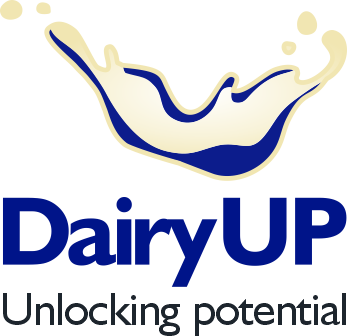What is Dairy UP?
- 3 Theme Areas
- 10 Projects
- 13 Suprojects
- 5 years
- A coordinated network of monitored dairy farms
Helping farmers increase productivity and profitability
Introductory video
Watch the video to gain an understanding on how the various Dairy UP partners and sponsors are working together.
The 10 Dairy UP projects (P1 – P10)
Program activities
Dairy Up is a major research and development program to help NSW farmers unlock the potential of their dairy businesses. It’s a collaboration of the University of Sydney’s Dairy Research Foundation, NSW DPI, Dairy Australia, and Scibus, with support from a range of NSW dairy industry players.
Dairy Up involves 10 projects which address the three keys to unlocking dairy potential: Improving productivity and profitability, de-risking farming systems and developing new markets.
P1: Unlocking the Potential of Kikuyu-based Systems
This project is exploring new management options to grow and utilise more Kikuyu over summer and increase the productivity of Kikuyu-based pastures. It includes specific projects investigating the use of using advanced technologies and remote sensing monitoring systems, the genetic diversity of Kikuyu, key antinutritional factors, environmental impact of Kikuyu-based systems, and opportunities for real time prediction and manipulation of its nutritive value for the animals.
There are five P1 projects:
- P1a: Remote Pasture Management
- P1b: Antinutritional Factors (toxicity)
- P1c: Genetic Variability
- P1d: Carbon on NSW dairy farms
- P1e: Nutritional Value
P1 project primary activities
- Identify and quantify key impediments to achieve productivity gains from tropical grasses (kikuyu-based pasture) on commercial farms in NSW farms.
- Work with 10-15 farms in 3 regions (North Coast; Hunter/Mid Coast; Bega/South Coast) to help them to increase productivity by > 20%.
- Integrate remote sensing-derived data with advanced simulation modelling to predict changes in the nutritive value of kikuyu and other species commonly used in NSW.
- Identify and quantify genetic diversity in selected dairy-specific traits of kikuyu.
- Quantify C emissions on intensively managed pasture-based systems.
- Use resources from 1 to 5 to work collaboratively with EMAI to unveil the long-term problem of kikuyu toxicity (poisoning).
- Develop (from 2) an orchestrated network of leading farmers and advanced farming systems for innovative extension programs.
P1 Projects Team Leaders (see the individual projects pages full teams lists)
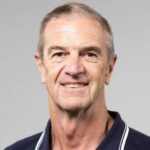
Lead/Co-ordinator:
Yani Garcia (University of Sydney) – sergio.garcia@sydney.edu.au
- P1: Unlocking the potential of kikuyu
Yani Garcia (USyd) - P1a: Remote Pasture Management
Martin Correa Luna (USyd) - P1b: Anti-Nutritional Factors (toxicity)
Jim Rothwell (NSW DPI) - P1c: Genetic Variability
Richard Trethowan (USyd) - P1d: Carbon on NSW dairy farms
Luciano Gonzalez (USyd) - P1e: Modelling/Quality
Co-led by Martin Correa Luna (USyd) and Juan Insua (UNMdP)
PhD Projects
P2: Unlocking the Potential of the Cow
This project is developing management practices to enable cows to achieve their genetic potential under NSW conditions. The focus is on profitable increases in both productivity and wellbeing in commercial settings. Specific projects are investigating cow longevity/survival, new tools for early detection and management of diseases caused by viruses and bacteria; and the use of milk as ‘diagnostic fluid’. advanced use of improved nutrition, environmental, and health management.
There are eight P2 projects:
P2a: Cattle Longevity: Age and Parity & Intensive Herds (Update Nov. 2023)
P2b: Early alerts*
P2c: Milk as a diagnostic tool (Update Oct. 2023)
P2d: Heat stress (Update Nov. 2023)
P2e: Calf husbandry*
p2f: Infectious diseases
P2g: Heifers early calving*
(*indicates project details yet to be published)
P2 project primary activities
A series of orchestrated programs and data-driven interventions to allow dairy cattle to be productive, healthy and reproductively successful by:
- Predicting and preventing disease in dairy herds, reducing the wastage of older cows while enhancing the potential to improve production and reproduction.
- Quantifying risk factors that influence the removal of cows using large data sets from USA, AUS and NZ and from local herds with detailed production and health data.
- Accurately detecting of diseases including arbovirus and bacterial disease in real time.
- Identifying behavioural and physiological characteristics of healthy and productive cows on farms. This will include monitoring related to facility design including environmental monitoring that can be linked to cow comfort and production. Time series statistical methods can be used in a multivariable context to identify the key drivers of cow comfort and production.
- Developing innovative extension models engaging farmers, farm-to-farm dissemination; consultants, service providers including engineering companies and researchers.
P2 Projects Team Leaders: (see the individual projects pages for full team lists)
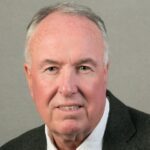

Lead/co-ordinator:
Ian Lean, (Scibus) – ianl@scibus.com.au
- P2 Unlocking potential of the cow –
Dr Ian Lean (Scibus) - P2a – Cow Longevity: Age and Parity & Intensive Herds
Dr Ian Lean (Scibus) - P2b – Early Alerts
Dr Jim Rothwell (NSW DPI) - P2c – Milk as a Diagnostic Tool
Dr Mark Hazelton (NSW DPI) - P2d – Heat Stress
Dr Ian Lean (Scibus) - P2e – Calf Husbandry
Dr Sabrina Lomax (USyd) - P2f – infectious Diseases
Dr Barbara Brito Rodriguez (NSW DPI)
PhD Projects
- Improving dairy cow longevity through metabolomics
- Interactions between dairy feeding systems, facility design, production and health
Journal articles
- Holstein dairy cows lose body condition score and gain body weight with increasing parity in both pasture-based and total mixed ration herds, Journal of Dairy Science Communications.
- Associations of parity with health disorders and blood metabolite concentrations in Holstein cows in different production systems, Journal of Dairy Science 105.
- Increased parity is negatively associated with survival and reproduction in different production systems, Journal of Dairy Science.
P3: The Economics of Intensification (Completed)
This project provided information to help farmers to decide if transitioning to an intensive production/feeding system is a suitable investment for their circumstances.
A similar project has been undertaken in northern Victoria, led by Agriculture Victoria. The findings from both the Victorian and NSW DairyUP project will contribute to a national Decision Support Project tool which is being developed by Dairy Australia (Adapting Farm Systems project) and Agriculture Victoria.
The NSW farms were located over a wide geographic region. By 2020-2021 all participating farms were considered to be in a zero-grazing system, with some of the farms still going through a transition phase. The approach involved detailed economic analysis of each farm, using the Dairy Farm Monitor methodology. It also included a social science study to explore drivers for change and the historic decision-making process in the same study cohort of farms.
Update (March 2024):
The economic analysis of the NSW TMR farms has continued since cessation of P3. This has been through the “Economics of Contained Housing” project funded by Dairy Australia and Agriculture Victoria with support from NSW DPI. This has enabled the NSW TMR data to be combined with the Northern Victorian TMR farm data and analysed. The results of this were presented by Sheena Carter (NSW DPI) and Claire Waterman (Agriculture Victoria) at the “Raising the Roof” Conference held in the Hunter Valley in February 2024.
Update (January 2024):
A NSW Raising the Roof event is being held 27-29 February 2024 at the Hunter Valley. Get your tickets here.
Progress (October 2023):
Key project findings were presented to industry at the Raising the Roof event, to be held in northern Victoria in May 2022. A NSW Raising the Roof Event is being held in February 2024.
Dairy UP’s P3 project involved two areas of work:
- P3a: Economics of intensification (7 NSW case study farms)
Read the Final Report - P3b: Social research to explore the drivers of change (3 NSW case study farms)
P3a News Articles:
Project Team
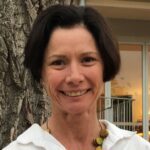



Lead/co-ordinators:
Sheena Carter (NSW DPI) – Sheena.carter@dpi.nsw.gov.au and
Karen Romano (Dairy Australia) – Karen.Romano@dairyaustralia.com.au
- John Penry – (Initial Lead) – Dairy Australia
- Claire Waterman – (Agvic)
- Juan Gargiulo – (NSW DPI)
P4: Feedbase – Maize for Silage
This project integrates precision agriculture, real-time monitoring of plants and soils, and advanced modelling, to grow more and better forage crops and increase water and land-use efficiency of intensified dairy systems.
Activities
- Integrate precision crop nourishment (timing, source, interactions summer-winter forage crops) through digital agriculture (digital soil mapping, digital sampling, decomposed digital data, precision water and N).
- Advanced real-time monitoring of crop development (and its application on forecast/planning and ration formulation).
- Quantify and verify water use efficiency of simple, double and triple forage crop systems.
- Upskill of management practices to produce quality silage.
- New directions in maize research: Brown Mid-Rib corn; genetic improvement of maize for silage; superior starch characteristics; tailoring maize silage to system/animal needs. Data-driven approaches for high quality maize silage: grow maize for quality through detailed nutritional analysis and feed evaluation.
Project team



Lead/co-ordinator:
Yani Garcia, (University of Sydney) – sergio.garcia@sydney.edu.au
- Cameron Clark (USyd)
- Diago Rotilli
- Ian Lean – Neil Moss (Scibus)
- Jonathan Ojeda
- Martin Correa-Luna (USyd)
- Rafiq Islam (USyd)
PhD Projects
Publications
P5: Our Farm Our Plan
Helping farmers identify a goal for their farm and develop a road map to achieve it.
P5 Projects
P5 Case Studies (PDF)
- Brad and Deirdre Smith, Greendale NSW
- Sammie Smith, Greendale NSW
- Sarah Wake, Hunter Valley NSW
- Natasha and Rod Yarrington, Dingo Creek NSW
Activities
- Implement the program’s monitoring and evaluation plan and, in addition, conduct research into the impact of the 1:1 support provided to farmers to inform future investment decisions.
- Deliver Our Farm, Our Plan workshops to 16-18 groups (total of 220 farms at an average of eight farms per group).
- Deliver 1:1 support for farmers through four structured follow up touch points over 24 months – this support will include facilitating a group of farms to enter their performance data through the DairyBase software.
- Building regional delivery capacity – this will include Regional Extension Officers (REOs) and private providers including Training and developing REOs, private providers, 3rd party organisations (Rural Financial Counsellors, Processers, Banks, Accountants and Farm Consultants), TAFE and tertiary education providers; some of these private consultants will engage with a subset of farms to work through specific identified issues as a result of the Our Farm our Plan process.
Project team


Lead/co-ordinator:
Greg Duncan (Dairy NSW) – Greg.Duncan@dairyaustralia.com.au
- Neil Webster (Dairy Australia)
- John Steer (Dairy Australia)
P6: Future Systems – Dairy Da.T.A
Dairy UP’s P6 project is exploring ways to use existing farm, climate and industry data to develop ways to monitor cows and systems to help farmers make better decisions, for example about heat management, health and feeding. One aim is to support animal and environmentally friendly intensification.
P6 is a suite of three projects that combine animal science and data science. Each project is being undertaken by a PhD student.
- P6a: Resilient cattle (heat tolerance): optimising on-farm energy use and cooling systems.
- P6b: Resilient cattle (health): early intervention for improved animal health, enabled by advanced sensing.
- P6c: Digital feeding – data-driven feeding to optimise grain allocation in pasture-based herds.
Project team
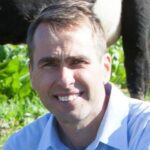

Lead/co-ordinator:
Cameron Clark (University of Sydney) – cameron.clark@sydney.edu.au
- Yani Garcia (Usyd)
- Ian Lean (Scibus)
- Jim Rothwell (NSW DPI)
- Peter Thompson (Usyd)
- Anna Chlingaryan (USyd)
- Maddison Pearce (USyd)
- Alice Shirley (USyd)
PhD Projects
P7: Dairy Businesses for Future Climates (Completed)
NEW: Listen to the latest “The Business of Dairy” podcast.
Click here to listen to Zita Ritchie interview Paula Gray about their experience and learnings as the case study farm in P7.
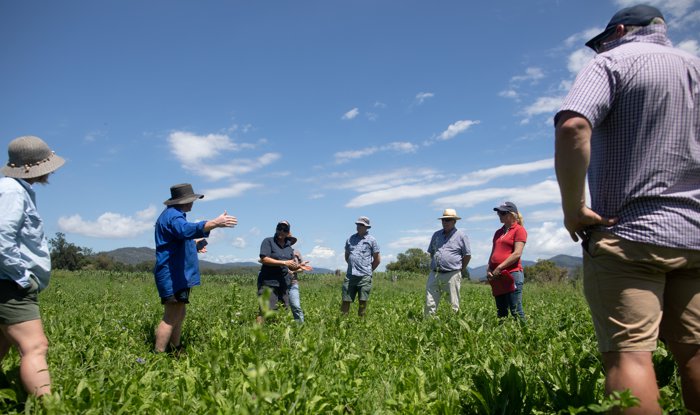

This project was designed to help dairy farmers understand their options for adapting their production systems and business to the impacts of climate change. It took a case study approach for detailed analysis of three different options: to intensify, adapt or simplify. The analysis involved both economics and farm system biophysical modelling to provide an integrated assessment of the case study farm’s options.
Led by Dairy Australia, this project had previously completed case studies for dairy farms in Northern Victoria, Gippsland, South Australia and Tasmania. Dairy UP funding has enabled a NSW case study to be added to the project.
A NSW case study farm was selected, located near Kempsey on the Mid-north Coast. The regional working group of farmers and service providers met several times to discuss options for the farm. Detailed modelling and analytical work was done by Dan Armstrong, a farm business consultant and Brendan Cullen from the University of Melbourne in collaboration with Zita Ritchie from NSW DPI.
Key findings were that managing heat stress a key factor for 2040 for this farming region. No option (intensify, adapt or simplify) was found to be superior, but all have their benefits and risks. However, the adapt option provides a reasonable strategy to mitigate climate impacts of heat stress with moderate capital investment.
| Report Summary | Focus Farm |
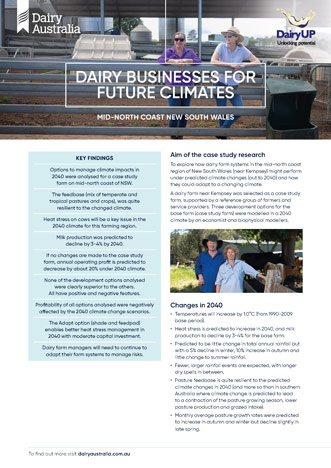  |
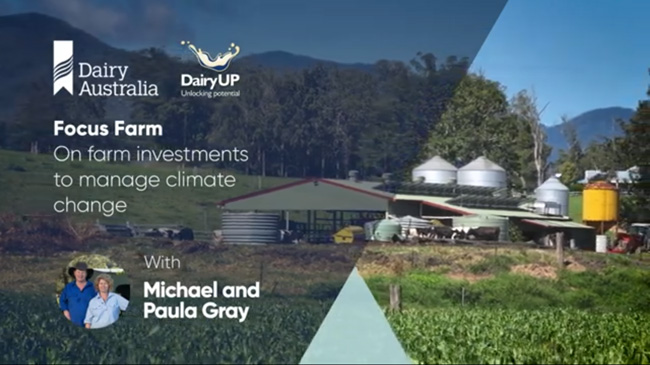  |
Project Team
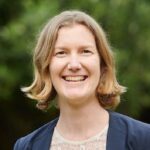

Lead/co-ordinator:
Zita Ritchie (DPI NSW) – zita.ritchie@dpi.nsw.gov.au
- Dan Armstrong (Consultant)
- Brendan Cullen (University of Melbourne)
- Paul van Wel (Dairy NSW)
- Ashley Blake (Dairy Australia Project Manager)
P8: Farmer Capability
An online staff training tool that farm managers could use with their team to share their processes (SOPs) for on-farm tasks. Signposts to a broad range of formal industry training programs such as Cups on Cups off, Rearing Healthy Calves. Also provides staff with a record of completion of professional development activities.
Activities
- Supported employee and dairy farm manager registration will be made available to all NSW dairy farm businesses (following on from the previously funded pilot phase in Victoria during mid-late 2020).
- Through a re-designed user interface, Dairy Passport users will be able to build their digital CV which is transportable between dairy employers.
- Farm Capability Dashboard will be released to provide an inclusive view of activity to enable informed decision making in relation to risk, capability and managing people.
- Standard Operating Procedures will be made available via video or QR code with concurrent automated compliance reporting and can be aligned with NSW DPI resources.
Project team


Lead/co-ordinator:
Paul van Wel (Dairy NSW) – paul@dairynsw.com.au
- Ash Black (Dairy Australia Project Manager)
- Charmaine Beauchier (Dairy Australia – Industry Talent and Capability Manager)
P9: Designer Milk
Investigating on-farm opportunities to produce milk with higher value components. For example, producing more milk solids with less water.
- P9a: Producing milk with less lactose
- P9b: Milk as an indicator of Heatload
- P9c Adding value to dairy waste*
(*indicates project details yet to be published)
Activities
- Detection models (targeted at consumers): source of origin, biological provenance verification
- Milk attributes / New products: Concentrating milk (‘more milk solids with less water’)
- Lateral systems thinking: Manufacturing input of biodegradable products & Colostrum management
Project team
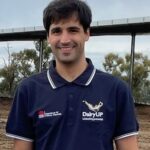

Lead/co-ordinator:
Juan Gargiulo (NSW DPI) – juan.gargiulo@dpi.nsw.gov.au
- Cameron Clark (USyd)
- Hugh Goold (NSW DPI)
- Ian Lean (Scibus)
- Rezaul Rakib (USyd)
- Russell Hovey (UC Davis)
- Valeria Messina (USyd)
- Yani Garcia (USyd)
PhD Projects
P10: Sustainable Pathways for Surplus Calves (Completed)
Led by Dairy Australia, this Dairy UP project aims to develop sustainable options for managing surplus calves born on dairy farms such as male (bobby) calves or females that are not destined to enter the milking herd.
The project involves working with stakeholders along the entire supply chain to develop pathways for surplus calves that are both socially and economically viable. The use of beef crossbreeding over some of the cows in the herd is one of the options.
The project operates at a regional level in NSW, to ensure ideas are relevant and applicable to local communities. The approach is based on developing an understanding of community and consumer attitudes as well as the needs of farmers and stakeholders along the supply chain.
A pilot is being undertaken in the Nowra region, involving two phases:
- Phase 1: Consultation and collaborative design of alternative management pathways
- Phase 2: An analysis of economics and risks of raising non-replacement calves in a dairy business.
Progress (November 2023):
The Growing Beef from Dairy project is a follow-on project from Dairy UP’s P10 Sustainable Pathways for Non-replacement calves. The project is developing an extension and adoption package to help farmers make better decisions for breeding, feeding, managing and meeting market requirements for surplus calves. It includes producer demonstration sites at Shady Creek (Jerseys), Woodleigh (Wagyu cross) and Mirboo North (different breeds).
Links for further reading:
• Project update (November 2023).
• Creating a dairy beef supply chain to increase the value and volume of beef and veal products (August 2023)
Progress (August 2023):
Phase two is complete. Market fluctuations during the study period highlighted the risks associated with variations in demand and price for dairy beef. Beef market prices were the biggest contributor to variation in net return per head. The feedlot market (and beef market in general) is highly volatile and this has an impact on the prices paid for dairy beef calves.
The decision to rear non-replacement calves involves significant non-financial considerations.
Progress (May 2023):
Phase one is complete and a follow-on project is now underway. Growing Beef from Dairy is a joint extension project between Dairy Australia and Meat and Livestock Australia.
A variety of consultation activities have been undertaken with the Nowra community, consumers, farmers, milk and meat processors, feedlots, genetics companies and other industry organisations. A key finding from the consultation is that all stakeholders along the supply chain recognise that sustainable management pathways for surplus calves need to be in place as soon as possible to address growing community/consumer expectations regarding animal welfare and social licence.
While all stakeholders appreciate the complexity of the challenge, there is widespread recognition of the need to listen to and align with evolving community values alongside strong collaboration along the supply chain. The key challenge for industry is achieving management options that are economically viable in the face of volatile seasonal and commodity prices and that can be integrated with their farming systems.
Project team


Lead/co-ordinator:
John Penry (Dairy Australia) – john.penry@dairyaustraia.com.au
- Dan Armstrong (RM Consulting Group)
- Keran Gandhi (Dairy Australia Project Manager)
- Pip Band (Consultant)
